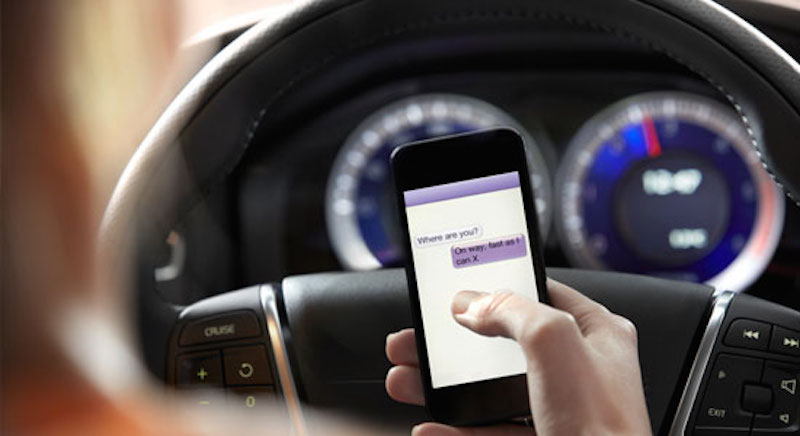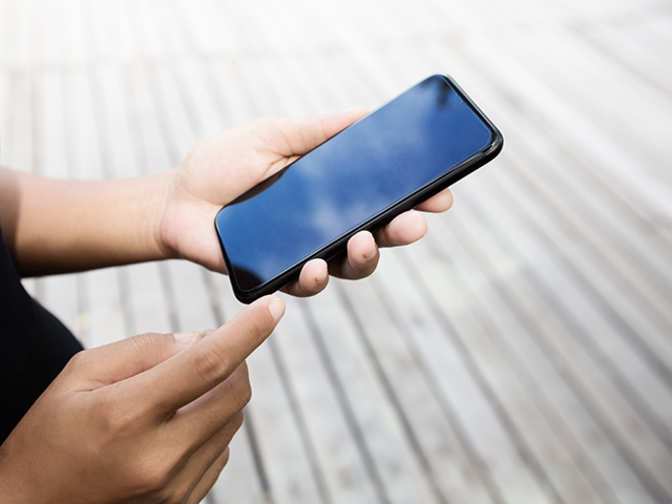Last year, US transport secretary Anthony Foxx argued that there is one thing that stands in the way between us and safer roads; our smartphones. While this may sound like a dramatic over-simplification the statistics show that he may have a point.
Data from the NHTSA shows that 3,179 people were killed and 431,000 were injured in crashes involving distracted driving in the US in 2014 alone. The most common cause of distraction involves looking at or using our cell phones.
These facts clearly show that owning and using a smartphone can have a negative effect on our driving, but what if our phones are also part of the solution?
The problem with phones on the road
According to Psychology Today, the average cell phone user “checks their device 150 times a day.” Perhaps more worryingly, 80% of college students surveyed said they felt jealous when someone else held their phones. In a culture this smartphone-obsessed, can we really trust ourselves not to use our phones when driving? And if not, what is the solution?
The above article surmised that “The more you use your phone, satisfying your hungry neurons with the positive feedback of constant connectivity, the more you wonder how you ever lived without it.” It’s a dangerous cycle, but many of us need our phones, both socially and professionally.
Is it the drivers or the phones that need to change?
Click4Reg, who specialise in online personalized number plates, suggest three ways to deter drivers from using their mobile phones: tough penalties, increased presence of traffic officers, and the introduction of compulsory driving modes — essentially flight modes for cars — for all smartphones.
Tougher penalties and increased traffic officer presence are two methods that focus on drivers rather than their mobiles. In the UK, the Conservative Government has introduced increases in penalties for using their mobile phones whilst driving. Someone caught using their phone behind the wheel will now receive six penalty points on their license and fines have doubled to £200 ($245).
However, most people already realise that texting or using their smartphones on the road is dangerous and, if Psychology Today are right about the notion of smartphone addiction, increasingly harsh punishments won’t solve the wider issue.
Enter The US National Highway Traffic Safety Administration, who are hoping to team up with Apple, Samsung, and other smartphone makers to adopt a so-called driving mode. According to The Guardian, the mode “will block distractions such as social media, messages or email, stop the use of the keyboard for communication activities and also restrict access to websites, video and distracting graphics.”
How your smartphone can actually save your life
It’s not just the big tech giants that are looking into innovative ways to reduce phone-related traffic deaths. There have been a number of apps launched to help make us better, safer drivers. Could this be the silver bullet solution that we’ve been looking for?
These app developers argue smartphones aren’t just meant to be discarded to the glove compartment or placed in driving mode. Instead, smartphones could become a pertinent part of every single journey we make in our cars.
Certain car insurance firms are even offering financial incentives in the form of discounts for drivers for submitting data collected by their iPhone. Apps such as EverQuote’s Everdrive can record particularly insightful statistics of the quality of a driver’s cornering, accelerating, braking, speeding, and phone use. Some have even suggested it will eventually change the way car insurance costs are calculated.
Another app aimed to improve driving is the aptly named SafeDrive, which, through a points system, makes safe driving competitive. You can challenge other drivers to a sort of “safe race”, and even use your points in exchange for discounted products.
These apps won’t completely solve the issue of distracted driving, however, they may well be the first, important step, in re-evaluating the relationship between our smartphones and our driving. Instead of being a distraction for drivers, our smartphones could play a key part in making our roads safer.
Simon Davies is a London based freelance writer with an interest in startup culture, issues and solutions.

1 Comment
Leave a Reply
Cancel reply
Leave a Reply
This site uses Akismet to reduce spam. Learn how your comment data is processed.




















































































































































































Janet Scott
May 8, 2017 at 1:37 pm
This article is really interesting, Thanks for sharing information. You can also read one more interesting research on “New Mobile App that helps Kiwi Women Battling Breast Cancer” – https:// www. appdexa.com/blog/new-mobile-app-that-helps-kiwi-women-battling-breast-cancer/.